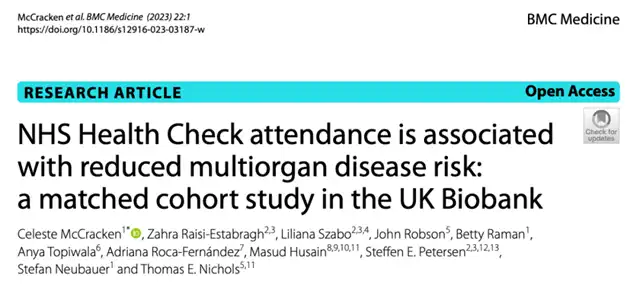Oxford University: Correlation between regular health check-ups and reduced risk of death
- Normal Liver Cells Found to Promote Cancer Metastasis to the Liver
- Nearly 80% Complete Remission: Breakthrough in ADC Anti-Tumor Treatment
- Vaccination Against Common Diseases May Prevent Dementia!
- New Alzheimer’s Disease (AD) Diagnosis and Staging Criteria
- Breakthrough in Alzheimer’s Disease: New Nasal Spray Halts Cognitive Decline by Targeting Toxic Protein
- Can the Tap Water at the Paris Olympics be Drunk Directly?
Oxford University: Correlation between regular health check-ups and reduced risk of death
- Should China be held legally responsible for the US’s $18 trillion COVID losses?
- CT Radiation Exposure Linked to Blood Cancer in Children and Adolescents
- FDA has mandated a top-level black box warning for all marketed CAR-T therapies
- Can people with high blood pressure eat peanuts?
- What is the difference between dopamine and dobutamine?
- How long can the patient live after heart stent surgery?
Oxford University research indicates a correlation between regular health check-ups and reduced risk of death.
The “Health Check” program, provided by the National Health Service (NHS) in the United Kingdom, offers a free preventive screening aimed at identifying individuals at risk of heart disease, stroke, diabetes, and kidney disease.
Healthy adults aged 40 to 74 are invited to undergo this screening, which includes basic physical examinations and inquiries into health behaviors.
Following the check-up, participants receive tailored support plans to delay or prevent the onset of the identified diseases. Similar programs are also implemented in other countries, including France and Germany.
Despite the widespread implementation of the NHS Health Check, there has been limited research on the effectiveness of such programs in preventing chronic diseases.
On January 24, 2024, researchers from Oxford University published a study titled “NHS Health Check attendance is associated with reduced multiorgan disease risk: a matched cohort study in the UK Biobank” in the BMC Medicine journal.
The study suggests that participating in the free preventive screening program “Health Check” offered by the NHS is associated with a decreased risk of death and lower incidence of several diseases, including dementia and cirrhosis. These findings indicate that “Health Check” and similar preventive programs can effectively reduce the overall risk of long-term diseases in the population.

In this study, the research team analyzed data from 97,204 participants in the UK Biobank, investigating the correlation between participation in the NHS “Health Check” program and the risk of death or future diagnosis of 14 different health conditions. Participants were recruited between 2006 and 2010, with 48,602 individuals participating in the NHS “Health Check” program between January 2008 and June 2016. Each participant in the “Health Check” group was matched with a similar control participant with potential confounding characteristics, such as demographic features and health behaviors. Over an average follow-up period of 9 years, the researchers tracked disease diagnoses in the participants’ health records.
The research team found that participants in the NHS “Health Check” had significantly lower diagnosis rates for several diseases, including a 19% lower rate of dementia diagnosis, a 23% lower rate of acute kidney injury diagnosis, and a 44% lower rate of cirrhosis diagnosis. Additionally, the overall risk of death for those who participated in the NHS “Health Check” was reduced by 23%.
The researchers emphasize that these results suggest preventive screening programs like the NHS “Health Check” can effectively lower the incidence of long-term diseases. They acknowledge the possibility of self-selection bias in the results, as individuals participating in screening programs are generally healthier than those who do not. However, they believe that the matching process for selecting control participants should mitigate the impact of this bias.
Oxford University: Correlation between regular health check-ups and reduced risk of death
(source:internet, reference only)
Disclaimer of medicaltrend.org
Important Note: The information provided is for informational purposes only and should not be considered as medical advice.



